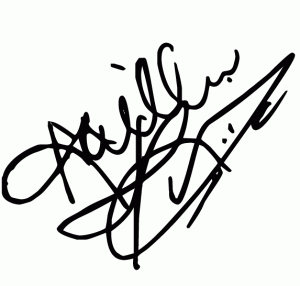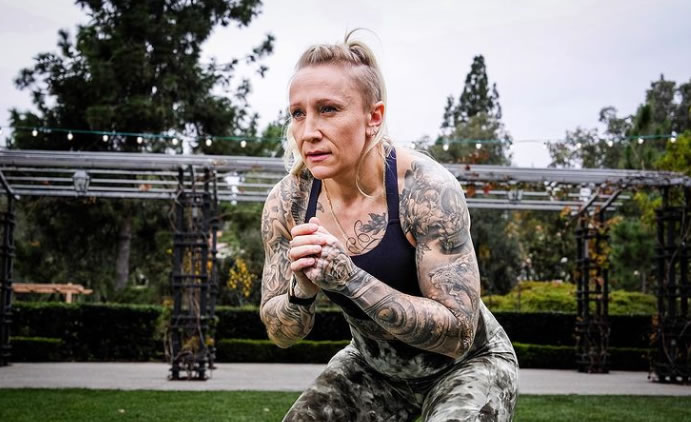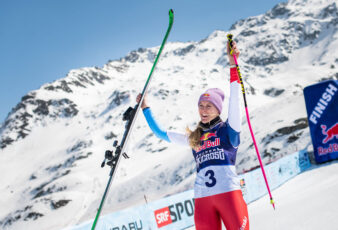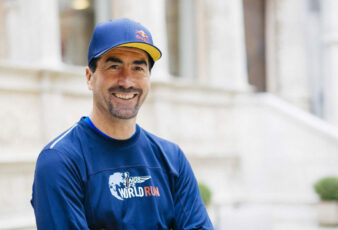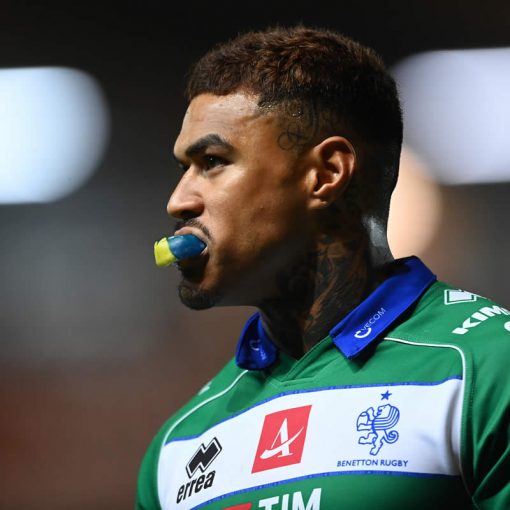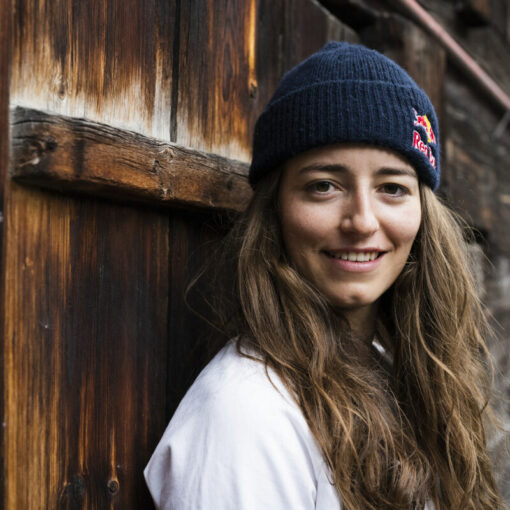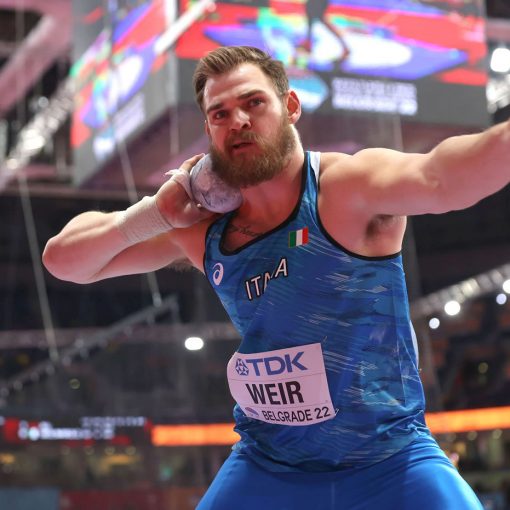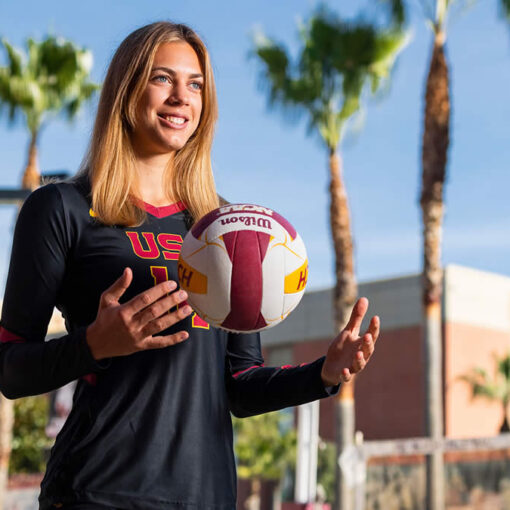A lot of the memories that I have as a kid are ski racing, but one that I really like was when I was 14, 15 years old: the first time my dad let me drive his car.
I always loved driving but was never really allowed to.
So, I had my learner's license and it was the first time on a big trip on the highway that he pulled over to the side and let me get in.
We were coming back from the mountains in Banff, on his old Cadillac: and I drove all the way home. I felt responsible for getting us back safely.
It was my first touch of a faster speed.
I was a different kind of teenager.
Definitely not a good student.
Definitely not a party person as a whole.
I was very focused: I very much wanted to go to the Olympics and be the best athlete that I could be. I started skiing when I was nine and I thought: “this is what I'm going to go into the Olympics for.”
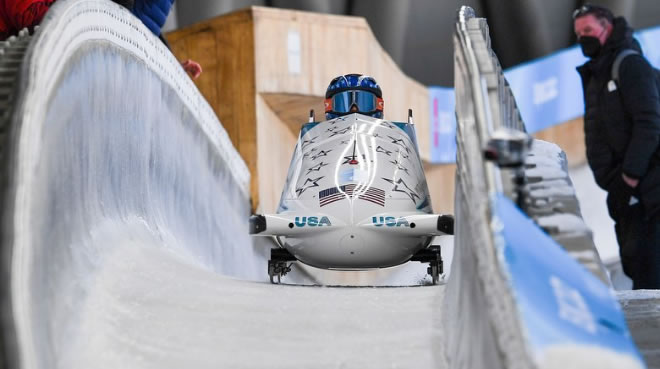
© Rekords
Then, at 16, I realized I was never going to go to the Olympics for ski racing, because I didn't have that ability to be fearless, at least in skiing.
It may sound weird, I know.
But in bobsled you don't have a choice, you can't pull the brakes on the way down the track. In skiing, instead, you can check, you can slow yourself down, and after multiple crashes, I didn't have the ability just to let go and challenge myself.
So, I quit.
My parents were very great: they let me get to that point on my own. I didn't feel pressure from family or friends or anybody else to make a choice. I could have continued if I wanted, and they would have supported me no matter what, but I made the choice on my own and I realized that I had to be very real with myself.
Is there a future in this?
Why am I working so hard?
Was it going to be worth it and did I want to do it?
And the more I thought about it, the more the answer was no. But I knew I didn't want to give up on sport. Anyway, I do really think that my time in skiing has really helped me become one of the best bobsledders because being able to read a course, see the lines, pick one, be able to achieve it, are hard things to do.
Things come fast at you and I have to feel the course, although it's with my hands instead of with my feet and my boots.
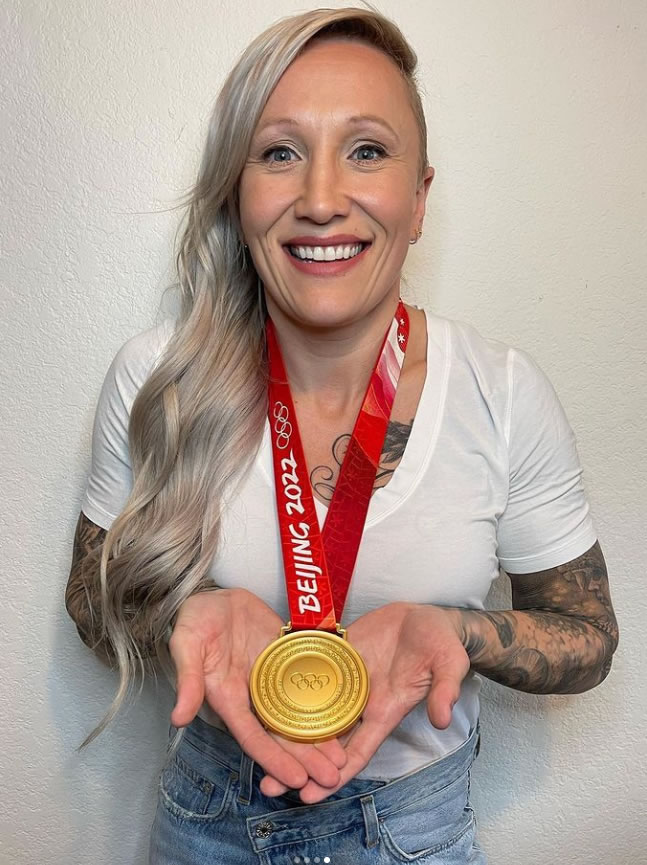
I've always felt very passionate, and I was always willing to dedicate and work hard and try and be the best version of myself. I just needed to find another avenue.
Growing up in Calgary, we had the bobsled track from the 1988 Games and most bobsledders are very strong and they're very big athletic people. That has always been me! Even as a teenager, I've always had very big legs.
So my dad took me to a recruitment camp, and from there I just got invited to try out with the national team. Within one year I was part of the team, and within three years, had gone to my first Olympics, which was in Turin, Italy, in 2006.
It all just kind of fell into place: I found my passion.
I fell in love with the possibility to be great.
The sport itself sometimes scares the bejesus out of me: the love for it has come from years of doing it and from the people that I've met. Sometimes there are moments when this sport is very challenging and hard, but there's something that keeps bringing me back to it. I have learned over time to love the sport itself for what it gives.
But my first initial driving force, what I fell in love with at the very beginning, was the ability to be great at something that got me through a lot of the tougher times. I could see a path forward to get to my goal of going to the Olympics. I knew that it was going to be hard and the sport was going to challenge me, but I found a way to express my deeper self. Till the point that I started to feel one and the same with it.
And I became great.
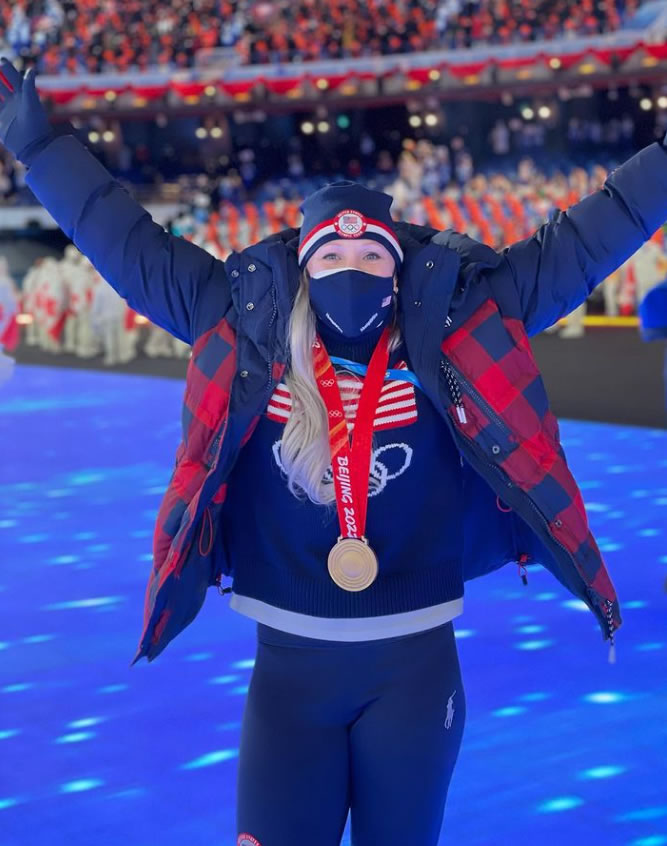
Our sport is not easy and there are a lot of things, from the first step you take until you cross that finish line, that could go wrong. And if it goes wrong, it could end up in death. So, in every race, there are a lot of opportunities to make a lot of mistakes. I’m chasing something impossible to get because there is no perfect run.
However, I still chase it.
I work hard for it and I know that.
Although every single step I take all the way down might not be perfect overall, I can have something that feels amazing anyway, and when it happened it was pure joy.
I've had a couple of these races: it feels easy, it feels effortless.
At the very beginning, for the first 50 meters, when you're pushing, every single step feels very powerful, it feels very dynamic. You're moving a very heavy object very quickly and you know, you're getting faster and faster and faster and it's your own body doing it and it's very empowering.
You jump in the sled and then you drive.
You can feel the sled get faster.
You can feel the sled accelerate.
That feeling of pressure puts you in the perfect position going into the next corner and then it becomes easy to drive. You barely have to turn the sled and you just feel it accelerate out. That feeling is what you're constantly chasing.
Sometimes that's not the case and you're fighting the sled and you're trying to get it back online. The sled is going a little sideways, and the tail end is sliding because the track is trying to get you to do things you don't want to do.
And then sometimes it’s just effortless. And that feeling of effortless, that feeling of speed and wind, when each corner feels so smooth: that to me is what a perfect run feels like.
Then you cross the finish line and you just know, without looking at a time.
You know you nailed it.
You know that you had the best run and you put yourself in the best position to be fast. Crossing that line and knowing you did everything the way you were supposed to and knowing it was fast: that's what you chase in the sport.
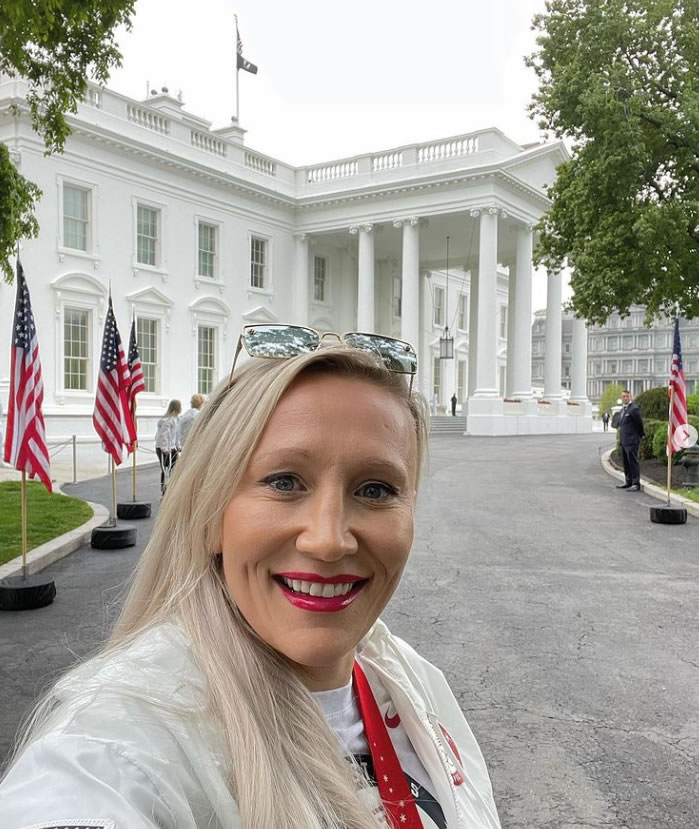
I have had a long career. I know that there's more I want to do, but I'm very satisfied with what I've accomplished. If I walked away tomorrow, I would be okay with it. But I still have goals and hopes and dreams, so there's more that I can get out of myself. And there's more that I want to help do to create a better future for athletes. And I think the best way for me to do that is still competing.
From 2006 to 2026: I want to start and end my career in Italy.
A 20-year Olympic career: sounds pretty perfect to me, especially after what I had to go through in the last few years.
It was very hard to leave Team Canada. I had a 16-year career with them, but I knew I was physically not safe in my environment and mentally I wasn't going to be okay staying there. And that's a hard position to be in because I had to choose my health and safety when the people that were supposed to be looking out for that, didn't.
I had to risk ending my career and I didn't know, when I filed my abuse and harassment claim, that that's what was going to happen. But I've seen it happen to plenty of other athletes from other countries in other sports within Canada, different sports. I've seen a lot of athletes stand up for themselves, and when you do so, it ends your career.
The physical threat of violence.
What was going to happen if I stood up for myself?
If I said: “This is how I feel and I know you can't treat me that way” what would happen to me? Would my jaw get broken, which has happened to another athlete via this coach? He's been arrested for assault. He's put his hands on me before and I've had to pull away from that uncomfortable feeling as a female athlete next to a very large, intimidating six-foot-five man who comes from a fighting background.
Constantly, at the top of a bobsled track, I was told: “you are not good enough” in front of the rest of the world, in front of other people, when all I was trying to do is be the best that I can be. And to be told that I am not that person and that he can make me better, and then to end up in tears all the time, not knowing if physically or mentally I'm going to make it to the next day. And when I said something, the people, the leaders that were there told me: “too bad it's not changing”.
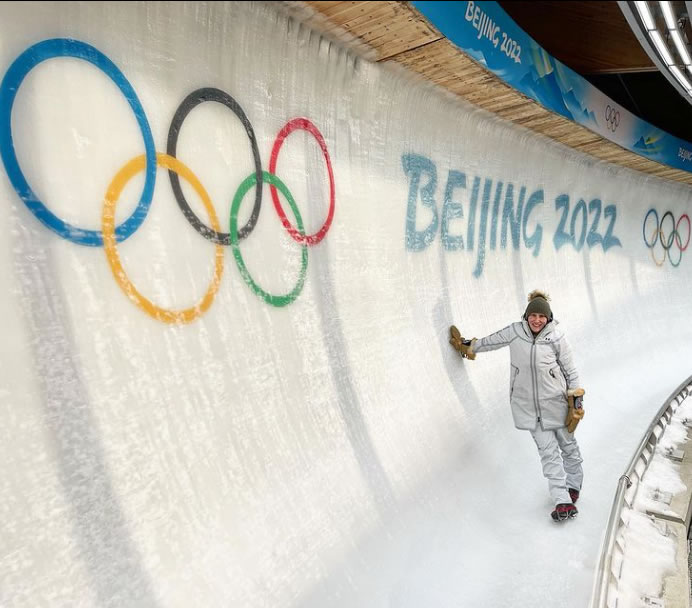
And then I started to fear for my physical safety. I was getting rashes all over my body, I was getting daily headaches, and I went to see an eye doctor. I went and got my brain scan done all on my own because nobody else would do it or pay for it or help line up meetings or appointments.
“Maybe I have a concussion”. I tried to come up with every other answer on what it could be and everything was checking out normal and fine. But I felt the lowest of the low and I knew something was physically wrong because of how I was being treated and because of the mental state I was in. And when I started to recognize that, I went and saw a psychologist, a sports psychologist. I started talking with people and understanding that the more I spoke about it, the easier it got to process. And the physical issues that I was having, the headaches. I was getting treated for depression and the rashes and the hives that I had on my body, the panic attacks that I would get when I thought about going back to the sport, all of those things, the more I recognized it, were easier to understand and it made sense to me. But for a while, I didn't know why it was happening or what was happening. And it wasn't until I was able to put a name on it and talk with somebody outside of sport to put a title on it that I started to deal with it.
I had to walk away.
I knew I couldn't be quiet.
And I couldn't not say something, and then ten years down the road, have another female say: “I was verbally or mentally abused. I felt unsafe. Why didn't somebody say something.”
I needed to stand up to not only this coach but to an environment that was putting other athletes in harm's way. And by doing that, it made me unpopular. I got called every name under the sun. I was a traitor for probably three years, it’s what I got called on social media a lot. But to me, it's what was right.
And it's something I would hope every athlete or every student did. If you're getting bullied, if you feel threatened or unsafe, walk away, leave the environment, put yourself and surround yourself with other supportive people. Put yourself in a safe environment. Don't just stay.
But to do that, I had to risk giving up an Olympic Game.
I didn't know if I would get citizenship in time to compete for Team USA, I probably had less than a 1% chance of making that happen.
But it happened, and I’m pretty grateful for that.
Kaillie Humpries / Contributor
